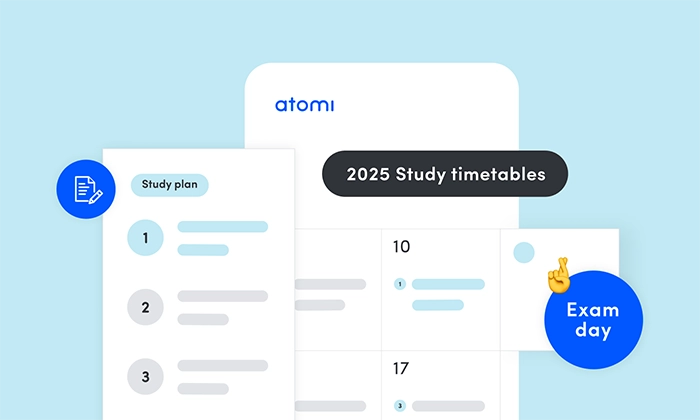Avoiding plagiarism like a boss

Well if our April Fools prank taught us anything, it’s that you guys could probably do with a heads up about what plagiarism is and how to avoid it.
I mean, not that you would ever do it intentionally but still, it’s not a bad idea to know a few tips and tricks for avoiding plagiarising because it’s a surefire way for one mistake to derail your entire HSC.
NESA even lays out the hard-hitting consequences of plagiarising.

🤔
Avoiding plagiarism is super important for any hand-in assessments during year 12, your major work submissions and even your HSC exams. Yes it’s true, while NESA doesn’t run your exams through Turnitin, they do have some sneaky measures in place to make sure you aren’t doing the old copy and paste.
So, here is your ultimate guide to avoiding plagiarism:
Don’t do it on purpose
So this is definitely not a blog post on helping you cheat better. The first step to not plagiarising is to not do it on purpose. Duh.
There are some things that we know are plagiarism: copying from a book or the internet, copying from a friend, paying someone to write your essay (big no-no).
But there are actually some things that count as plagiarism that you might not be aware of. As well as “stealing” someone else’s words and pretending they’re your own, you can also steal ideas, essay structures, arguments and more. It might sound tricky but the best way to make sure you’re clean is to reference. Yay.
Referencing is literally everything
Anytime you write a research essay, you’re going to be using other people’s work. The one thing that stops it being plagiarism is referencing.
We know referencing sounds like the most boring thing ever but it is an absolute lifesaver.
Anytime you use a quote, an argument or even an idea that came from someone else, as long as you reference who it came from, you’re not plagiarising at all. Even if you paraphrase a source, just reference it and you will be sweet.
Your school should tell you which referencing system to use and there are websites like Cite this for me that will do the work for you. So, guess that means you have no excuse not to reference!
Careful with the work you share
It’s super important to remember that during the HSC, you can be accused of plagiarising other year 12 student’s work.
Now you know that you can’t take someone else’s work, right? But, if you share your work with a friend and they copy your work, you could still be accused of plagiarism because there’s no way to prove who cheated.
You can definitely share notes and help your friends out, but try to avoid sending anyone your finished essays or major works if you think they might copy chunks of it for themselves. Friends don’t get friends zero marks for plagiarism!
Have good researching/writing habits
So there are also some researching and writing habits that will make it much easier for you to avoid accidentally plagiarising:
- Use different resources
Instead of just using one book or article, using a range of different sources means that you’re less likely to end up completely copying someone else’s work. It also makes your work heaps better.
- Use bullet points when you research
When you’re making notes from a source, write down your notes as bullet points in your own words instead of copying down the exact wording of the source.
- Make your conclusion from other people's work
You’re obviously going to be referring to other people’s ideas and work because it’s not like a year 12 student can some up with every answer and idea on their own! But make sure you acknowledge the ideas belonging to other people and then draw your own conclusion.
Remember
Plagiarism isn’t the most fun or exciting topic. But getting a 0 in an HSC assessment or exam isn’t fun or exciting either. It’s really not worth plagiarising on purpose - remember you could be facing shame or “the absence of genuine learning”!
Seriously though, it really is worth learning the tricks like referencing, protecting your work and good researching habits to prevent any accidental plagiarism. Year 12s have enough to worry about this year, make sure plagiarism isn’t part of it!
References
Subscribe to our newsletter
Get the latest teaching and learning insights delivered to your inbox.
You can unsubscribe at any time, no hard feelings.
Subscribe to our newsletter
Get the latest teaching and learning insights delivered to your inbox.
You can unsubscribe at any time, no hard feelings.
What's Atomi?
Easy to understand, super engaging, and matching what you’re learning in class. Available for 100s of subjects across your high school years.
With heaps of questions and smart AI feedback that shows you what you’ve nailed and what to work on—so you won’t just feel ready, you’ll be ready.
Improve your study game, get AI-driven tips tailored to you, keep tabs on your progress and unlock insights so you can always hit your goals.
What's Atomi?
Captivating and impactful video-first content, fit for all types of learners and grounded in the absolute must-have info of the high school curriculum.
Active recall quizzes, topic tests and exam practice enable students to get immediate feedback and build skills, while allowing teachers to differentiate instruction.
Create engaging learning experiences with easy-to-use tasks, get actionable insights to differentiate instruction and experience intelligent personalisation for your students.
What's Atomi?
Short, curriculum-specific videos and interactive content that’s easy to understand and backed by the latest research.
Active recall quizzes and practice sessions enable students to build their skills, put knowledge into practice and get feedback.
Our AI understands each student's progress and makes intelligent recommendations based on their strengths and weaknesses.




